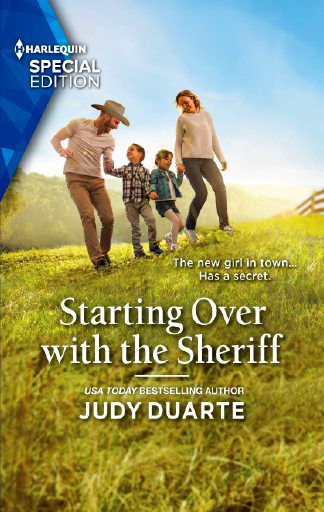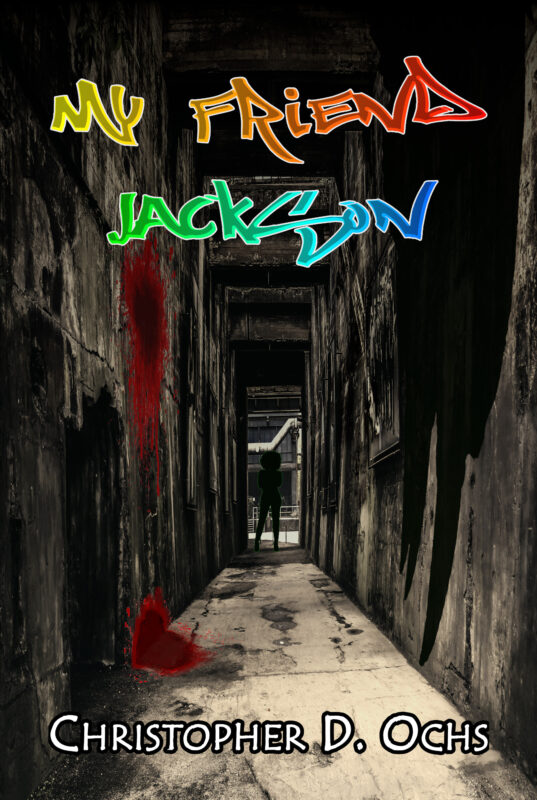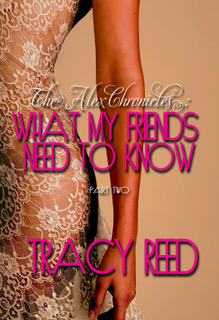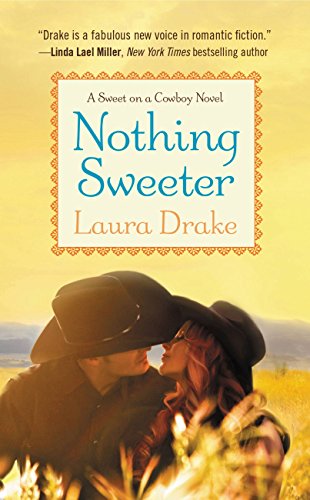STUMPED
April 15, 2018 by Rebecca Forster in category Writing tagged as Craft, fun, help, mystery, psychology, thriller, writing The other day I came home to find the men I hired to build my patio sitting in my backyard looking at a stump. This was not a normal stump. This was a giant. Paul Bunyan, Big John kind of stump. I sat down with them and I, too, considered the stump.
The other day I came home to find the men I hired to build my patio sitting in my backyard looking at a stump. This was not a normal stump. This was a giant. Paul Bunyan, Big John kind of stump. I sat down with them and I, too, considered the stump.
“George had to get his chain saw for that sucker,” one of them finally said.
“Took two hours to get it out,” another offered.
“I think it broke George’s saw,” the first chimed in.
“Why didn’t you leave it in the ground,” I asked. “You know, pour the cement around it?”
“We thought about it,” the third said. “It wouldn’t have been right.”
They told me that they had managed to cut it up into the piece we were looking at but that it had been twice as big and buried deep in the ground; a remnant of a primordial tree. Their task had been Herculean. They told me that if they poured the cement over the stump, the darn thing could rot and my steps would fall in, and I would be upset with them because they had poured cement over a stump the size of San Francisco.
“It looks petrified,” I said. “How many years do you think it would take to rot?”
The first guy shrugged, “Twenty. Thirty years.”
I shrugged back. I would probably be dead by the time the stump rotted and my stairs fell in. I guess it was the principal of the thing. They would have known the stump was there.
We sat in the hot sun a while longer. Someone suggested carving the stump into the likeness of the contractor. I liked that idea but no one knew how to carve. I thought we could make it into a table. Eventually, we all stopped looking at the stump. The men moved it out of the way and started work again; I went inside to make dinner.
That stump has now been in my backyard for months. I can’t bring myself to get rid of it. But, like all things that are hard to get rid of, it eventually served a purpose. It taught me a few lessons:
1) Everybody has a stump. It might be in your real backyard, your professional backyard or your personal backyard, but it is undoubtedly there.
2) What you do with your stump will tell you a lot about yourself. Either you will dig it up and deal with it, or you will leave it to rot.
3) If you’re stumped and need help there is always someone willing to work hard with you to take care of it as long as you work as hard as they do.
4) You can never go through a stump but don’t panic. You can go around them, over them and sometimes even under them but that takes the longest.
5) Sometimes stumps are not as big as they look and sometimes they are bigger. Size doesn’t matter. Stumped is stumped.
 SECRET RELATIONS, book #3 of the Finn O’Brien Thriller series is available now.
SECRET RELATIONS, book #3 of the Finn O’Brien Thriller series is available now.
Reach me now!
Follow me on:
3 0 Read moreNow & Then: An Author Looks Back
March 15, 2018 by Rebecca Forster in category The Write Way by Maureen Child, Writing tagged as author, Craft, history, inspiration, writing I am updating my early romances and contemporary women’s fiction novels with the intention of re-releasing them. I am excited because these books were my training ground. In these pages I can hear the first tentative sounds of my distinct ‘author’s voice’. I see that I instinctively had a good grasp of what makes a story work (don’t all voracious readers have that instinct?). There is one more thing I see in these books that is hard to embrace: my major author ‘dork’. I have no other word for my early writing stumbles. Some of them were mistakes of publishing fashion and others were born from an untrained sense of drama.
I am updating my early romances and contemporary women’s fiction novels with the intention of re-releasing them. I am excited because these books were my training ground. In these pages I can hear the first tentative sounds of my distinct ‘author’s voice’. I see that I instinctively had a good grasp of what makes a story work (don’t all voracious readers have that instinct?). There is one more thing I see in these books that is hard to embrace: my major author ‘dork’. I have no other word for my early writing stumbles. Some of them were mistakes of publishing fashion and others were born from an untrained sense of drama.
Since hindsight is a wonderful thing, I thought I’d share my top three ‘author dork’ mistakes.
1) Hysterical dialogue: This is not an industry term so don’t use it with an editor. Sill, I think it perfectly describes my use of long sentences, harsh words, and huge banks of exclamation points to get across a character’s anger, distress, fear and passion.
Solution: In my later work, I learned that proper scene set-up, thoughtful exposition, and spare and realistic dialogue give me a lot more dramatic punch.
2) Fad over fashion: Within the first few pages of Seasons (a book I really love) my heroine appears in Laura Ashley dress. If you’re old enough to know who Laura Ashley is, you’re cringing at the image. If you’re not old enough to know then I have made you stumble as you try to figure it out. I have no doubt I will also run across references to big shoulder pads and power suits.
Solution: I now describe clothing generally – jeans, slacks, blazer, leather jacket – to allow the reader to fill in the detail blanks. I use color to underscore character. I never use a designer name or a fad because this dates a book. The only exception is when I need the fad to assist in a plot point. For instance, a label in a corpse’s clothing might call out a specific designer.
3) Overwriting: When I first started writing there seemed to be an accepted rule of thumb that a chapter was twenty pages, that women’s fiction and romance were not worthy unless the author lingered over love scenes and dialogue was drawn out. If there is purpose to long stretches of prose or dialogue then go for it, but if during the edit the author can’t remember what happened in the last three pages of a book then the reader won’t remember either.
Solution: Tell the story. Do not write to word length. Either the story is solid and will move along at a good clip or it won’t, either it will be 100,000 words or it won’t. The readers won’t stick with you.
The good news is that I am happy with these early books and will not fundamentally change them. I will, however, make them better by applying what I know now to what I wrote then. If only we could do the same thing with our high school yearbook pictures the world would be perfect!
Happy writing.
 Don’t forget to check out my latest release, Secret Relations, book 3 in the Finn O’Brien Thriller Series.
Don’t forget to check out my latest release, Secret Relations, book 3 in the Finn O’Brien Thriller Series.
Here’s where you can find me!
Website: http://rebeccaforster.com
Facebook:
Personal: https://www.facebook.com/rebeccaforster
Author page: https://www.facebook.com/RebeccaForster4/
Twitter: @Rebecca_Forster
Instagram: https://www.instagram.com/rebeccaforster1211/
Subscribe to my newsletter and get my 2-book starter library:
DEVILISHLY GOOD DETAILS
January 15, 2018 by Rebecca Forster in category The Write Life by Rebecca Forster tagged as Craft, creativity, inspiration, movies, process, Storytelling Yesterday my husband and I decided to inaugurate the MoviePass cards our son gave us for Christmas. With one swipe (and $10 a month) we can see as many movies as we like at any theater.
Yesterday my husband and I decided to inaugurate the MoviePass cards our son gave us for Christmas. With one swipe (and $10 a month) we can see as many movies as we like at any theater.
Our first movie would be The Post at our local theater. It took both of us, and the manager, to figure out how to make the card work (which in hindsight should not have been necessary if we understood our phone settings). Finally, we swiped our cards only to find that The Post was sold out. That pushed us to our default selection: any movie that was not sold out. We ended up in a nearly empty theater watching Jumanji, the 20-year-later sequel to Robin William’s wonderful movie by the same name.
Jumanji is a fanciful action-adventure movie about a game that sucks people into an alternate universe and in order to get home, the player must win the game. In William’s version, he was the only one who disappeared. This version has an ensemble cast that includes The Rock, Jack Black and two other actors we weren’t familiar with but who were perfectly cast.
The movie began, the music was ominous, the set up delightful, the locations beautiful and the direction energetic. The kids in the theater reacted with oohs, aahs, and other exclamations of delight.
Oh, wait! That was me oohing and aahing!
Yep, I loved every bit of that movie and when I got home I realized the reason I loved it was because I lost myself in the storytelling. Everyone from the screenwriter to the lighting guy and cast was on board with the creative vision. The premise was quickly and clearly established. Casting was based on character and not on what looks that the producers deemed ‘sexy and salable’. The computer-generated stunts did not overpower the story nor did they last so long that the viewer could literally leave, have dinner and come back and they would still be crashing about on screen. If something fantastic happened – like characters dying and getting shot into space and suddenly falling back to earth again without injury – the viewer accepted it because it quickly became apparent that each piece of this story had a purpose. There was always a payoff that made sense. Threads were wrapped up at the end. The story built to a conclusion and didn’t present it. But better than anything, the actors never broke character. The adult actors were asked to channel their teenage counterparts in the real world that had been left behind. I have seen this transference in movies before but too often the adult actor simply remains an adult. The last time I saw this plot point beautifully executed was in Tom Hanks’s Big.
So, here’s what I want you to do. Before you write another word, before you start editing, go see Jumanji. It is one of the best lessons in pitch-perfect storytelling I’ve had in a very long time. As for me, I’m going back to work and give my manuscript the Jumanji treatment because the devilish details are what make for a heavenly story.
Subscribe and get my 2-book starter library FREE:
Follow me on Bookbub!
Follow me on Facebook
Follow me on Twitter
4 0 Read moreIs Your ‘Plate’ Too Full? by @Rebecca_Forster
November 15, 2017 by Rebecca Forster in category The Write Way by Maureen Child tagged as Craft, editing, solutions, writing Today my November plate is officially too full.
Today my November plate is officially too full.
It has been piled high with cold, flu conferences, a last minute, out of country speaking engagement and now a medical screening that needs a follow-up. Of course, there are also everyday things that pile on to the plate: bills, calls from my sons, the tennis league I belong to, dinner to cook and bathrooms to clean. I’m not complaining. This is all just life and good stuff if you take the cold and medical appointments out of the equation. Still, filling out my calendar and trying to figure out how I’m going to fit quality writing time in the schedule made me think about the craft of writing a novel. The question on my mind was how much is too much before a reader throws up her hands and pushes the literary plate away?
As a thriller writer, I love to go over the top. Unfortunately, I can get a bit too energetic and take the technique to crazy extremes. It’s a fault. No, it’s worse than a fault. It’s a sin to be so involved with own words that I forget my job is to entertain not challenge someone to wade through my excesses. When I do go overboard, I am giving my readers a reason to push away the literary plate I have served them.
Luckily, there are remedies for ‘too much’ writers like me. In real life we say no to many things, so let’s start saying it in our fiction. Here are three ways to figure out if you just served your reader a plate that is too full.
[tweetshare tweet=”Three ways to figure out if you just served your reader a ‘plate’ too full by @Rebecca_Forster” username=”A_SliceofOrange”]
Echo: A particularly inspired turn of phrase, description or character quirk is a thing of beauty. Constant use of the same phrase or description or a continual reminder of the quirk is an annoyance. Readers are smart and imaginative. They will get it.
Blow-by-Blow : No pun intended, but sex scenes are more effective and dramatic if they are evocative rather than clinical. The same rule of thumb applies to shootouts, character travel or any scene that stops the reader and forces them to linger without a point. Move the story forward using varied sentence structure and only critical physical descriptions.
Cast of Thousands: Have you ever tried to find a friend in a crowd? It’s impossible because all you can see is a blur of humanity. The same thing happens to a reader if there are too many characters populating your book. Think of your book as a play. Characters may come and go but the ones we care about should always be center stage.
While you edit look for the echo, the blow-by-blow and the cast of characters and adjust the emphasis, streamline the structure and your literary plate will go from too full to too fabulous.
Rebecca
Stories My Mother Told Me
September 14, 2017 by Rebecca Forster in category Writing tagged as Craft, experience, Family, life, mother, writingMy mother will be 93 years old on September 21. She travels with me, reads all my books and is my best friend. I wrote this blog some time ago, but I want to share it again because it deserve repeating that she is an amazing woman. I am so proud of my mom. Happy birthday, mom.
_________

Mom at 92
My parents made a pact to stand on every continent in the world. When my dad passed away, my mother went to the Antarctic for both of them. That’s when I figured there was a lot I didn’t know about mom.
When she returned with a bright orange jacket that she got ‘for free’ (don’t count the cost of the cruise) she had lots of stories to tell. Yet, when the excitement of the trip wore off, we both had the sense that we were still standing on a pitching deck with no way to get to calm seas. A big piece of the puzzle – my dad – was missing.
“Write your memoir,” I said.
“My life wasn’t interesting,” she answered.
But the idea must have taken hold. Not long after this conversation, she called. She was done with her memoir.
“Impressive,” I mused.
It took me months to write a novel and she finished hers in a week. Then I saw why. Her ‘manuscript’ was five pages long and she was eighty-five years old. There had to be more.
And so began a year of weekend sleep-overs as we poured over photographs for inspiration. She had twenty beautifully documented photo albums, a box with pictures when cameras were still a new fangled thing.
There was mom wearing waist-length braids and Mary Jane shoes standing in the Germany village she called home.
She was a teenager in the U.S. while war raged in Europe, catching up the grandmother she had lived with, cousins and friends.
There was my mom posing in a swimsuit she bought with the dollar she found on the street.
Mom in her twenty-five dollar bridal gown perched in the back of a hay wagon beside my father, a skinny, wide-eyed farm boy who would become a doctor.
Mom with one child. Two. Three. Five. Six of us all together. Dark haired and big eyed we were her clones dressed in beautiful, homemade clothes. I remember going to sleep to the sound of her sewing machine.
And there were words! I bribed my mother with promises of Taco Bell feasts if she gave me details. Funny, what came to her mind.
To keep body and soul together when my father was in med school, he was a professional mourner and bussed tables for a wealthy fraternity. My mom worked in a medical lab where the unchecked radiation caused her to lose her first baby. They ate lab rabbits that had given their all for pregnancy tests. They were in love and happy and didn’t know they were poor. But St. Louis was cold, she remembered, and they couldn’t afford winter coats. Still, she insisted, they weren’t poor. I listened and knew they were happy.
She typed, I edited; I typed, she talked. My youngest brother almost died when he was 10. She didn’t cry for a long while; not until she knew he would live. The captain of the ship that took her back to Germany was kind. She dreamed of becoming a missionary doctor. In 1954, she had two toddlers (me and my brother) and another baby on the way when she and dad drove to Fairbanks, Alaska where he would serve his residency at the pleasure of the U.S. Air Force. Her favorite outfit was a suit with a white collar. She loved her long hair rolled at her neck in the forties. In the fifties she made a black dress with rhinestone straps and her hair was bobbed. In the sixties, she made palazzo pants and sported a short bouffant. She looked like a movie star in her homemade clothes. I wanted to grow up to be as glamorous as she was. She still thought she wasn’t interesting.
Mom wrote the forward to her memoir herself. It began:
A great sense of loneliness fills the house as twilight approaches. In the silence, I can almost hear the voices of my grown children as they recall their childhood years, the laughter of grandchildren and the quiet conversations of friends who have gathered here in years past, echoing through the empty rooms.
You see, she really had no need of my help as a writer.
We had seven copies printed with a beautiful cover of a sunset. She called the book In The Twilight of My Life and would not be swayed to change it. Mom thought it perfect and not the least depressing. It was, she laughed, exactly right. It was the laugh that made it right. She gave my brothers and sisters a copy for Christmas. My older brother had tears in his eyes. Everyone exclaimed: “I never knew that”.
Now I have a book more treasured than any I have written. I learned a lot about my mom and I realized why I create fictional women of courage and conviction, strength and curiosity, intelligence and, most of all, spirit. It’s because, all this time, I’ve been writing about my mother.
4 0 Read more
Affiliate Links
A Slice of Orange is an affiliate with some of the booksellers listed on this website, including Barnes & Nobel, Books A Million, iBooks, Kobo, and Smashwords. This means A Slice of Orange may earn a small advertising fee from sales made through the links used on this website. There are reminders of these affiliate links on the pages for individual books.
Search A Slice of Orange
Find a Column
Archives
Featured Books
STARTING OVER WITH THE SHERIFF
Starting anew? But what if he learns the truth?
More info →MY FRIEND JACKSON
Can Jasmine untangle her life and reclaim her identity, her life—her soul?
More info →WHAT MY FRIENDS NEED TO KNOW
Would you break the girl code for love?
More info →Newsletter
Contributing Authors
Search A Slice of Orange
Find a Column
Archives
Authors in the Bookstore
- A. E. Decker
- A. J. Scudiere
- A.J. Sidransky
- A.M. Roark
- Abby Collette
- Alanna Lucus
- Albert Marrin
- Alice Duncan
- Alina K. Field
- Alison Green Myers
- Andi Lawrencovna
- Andrew C Raiford
- Angela Pryce
- Aviva Vaughn
- Barbara Ankrum
- Bethlehem Writers Group, LLC
- Carol L. Wright
- Celeste Barclay
- Christina Alexandra
- Christopher D. Ochs
- Claire Davon
- Claire Naden
- Courtnee Turner Hoyle
- Courtney Annicchiarico
- D. Lieber
- Daniel V. Meier Jr.
- Debra Dixon
- Debra H. Goldstein
- Debra Holland
- Dee Ann Palmer
- Denise M. Colby
- Diane Benefiel
- Diane Sismour
- Dianna Sinovic
- DT Krippene
- E.B. Dawson
- Emilie Dallaire
- Emily Brightwell
- Emily PW Murphy
- Fae Rowen
- Faith L. Justice
- Frances Amati
- Geralyn Corcillo
- Glynnis Campbell
- Greg Jolley
- H. O. Charles
- Jaclyn Roché
- Jacqueline Diamond
- Janet Lynn and Will Zeilinger
- Jaya Mehta
- Jeannine Atkins
- Jeff Baird
- Jenna Barwin
- Jenne Kern
- Jennifer D. Bokal
- Jennifer Lyon
- Jerome W. McFadden
- Jill Piscitello
- Jina Bacarr
- Jo A. Hiestand
- Jodi Bogert
- Jolina Petersheim
- Jonathan Maberry
- Joy Allyson
- Judy Duarte
- Justin Murphy
- Justine Davis
- Kat Martin
- Kidd Wadsworth
- Kitty Bucholtz
- Kristy Tate
- Larry Deibert
- Larry Hamilton
- Laura Drake
- Laurie Stevens
- Leslie Knowles
- Li-Ying Lundquist
- Linda Carroll-Bradd
- Linda Lappin
- Linda McLaughlin
- Linda O. Johnston
- Lisa Preston
- Lolo Paige
- Loran Holt
- Lynette M. Burrows
- Lyssa Kay Adams
- Madeline Ash
- Margarita Engle
- Marguerite Quantaine
- Marianne H. Donley
- Mary Castillo
- Maureen Klovers
- Megan Haskell
- Melanie Waterbury
- Melisa Rivero
- Melissa Chambers
- Melodie Winawer
- Meriam Wilhelm
- Mikel J. Wilson
- Mindy Neff
- Monica McCabe
- Nancy Brashear
- Neetu Malik
- Nikki Prince
- Once Upon Anthologies
- Paula Gail Benson
- Penny Reid
- Peter J Barbour
- Priscilla Oliveras
- R. H. Kohno
- Rachel Hailey
- Ralph Hieb
- Ramcy Diek
- Ransom Stephens
- Rebecca Forster
- Renae Wrich
- Roxy Matthews
- Ryder Hunte Clancy
- Sally Paradysz
- Sheila Colón-Bagley
- Simone de Muñoz
- Sophie Barnes
- Susan Kaye Quinn
- Susan Lynn Meyer
- Susan Squires
- T. D. Fox
- Tara C. Allred
- Tara Lain
- Tari Lynn Jewett
- Terri Osburn
- Tracy Reed
- Vera Jane Cook
- Vicki Crum
- Writing Something Romantic
Affiliate Links
A Slice of Orange is an affiliate with some of the booksellers listed on this website, including Barnes & Nobel, Books A Million, iBooks, Kobo, and Smashwords. This means A Slice of Orange may earn a small advertising fee from sales made through the links used on this website. There are reminders of these affiliate links on the pages for individual books.






















































